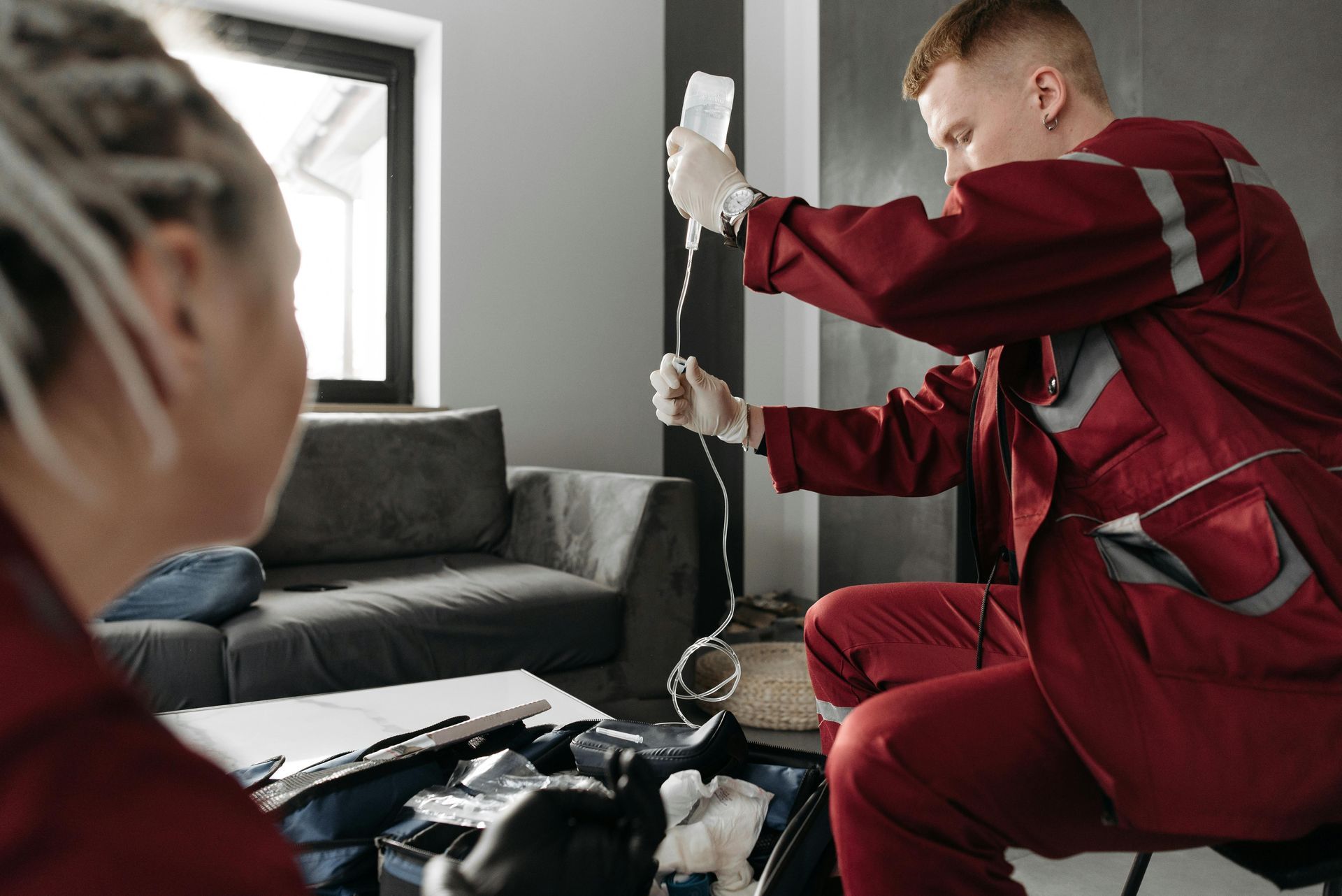Vitamin C IV Therapy: Benefits, Process, and Safety Explained

Medically reviewed by Micaela Strevay, FNP-C, PMHNP-BC
Table of Contents

Vitamin C IV therapy has garnered attention as a method for delivering high concentrations of vitamin C directly into the bloodstream. This guide will explore the ins and outs of this treatment, detailing its benefits, process, potential risks, and how it compares to other methods of vitamin C intake.
Understanding Vitamin C IV Therapy
What is Vitamin C IV Therapy?
Vitamin C IV therapy involves the intravenous administration of vitamin C, allowing for higher doses than what is typically achievable through oral supplements. By bypassing the digestive system, this method enables the body to absorb nearly all of the vitamin C delivered. This therapy is frequently utilized in medical and wellness settings for its potential therapeutic effects.
The procedure involves a healthcare professional inserting an IV line into a vein, through which a solution containing vitamin C, often in the form of ascorbic acid, is infused. Sessions can vary in duration depending on the prescribed treatment protocol, ranging from 30 minutes to several hours. Patients often report a sense of relaxation during the infusion, and some clinics even offer a comfortable environment with amenities such as reclining chairs, soothing music, and refreshments to enhance the experience.
The Science Behind Vitamin C IV Therapy
The mechanism of vitamin C in the body is complex. Vitamin C, or ascorbic acid, is a powerful antioxidant, playing a critical role in protecting cells from damage caused by free radicals. It is also essential for the synthesis of collagen, aiding in skin repair and overall joint health. This vital nutrient supports the immune system by promoting the production of white blood cells, which are crucial for fighting off infections and diseases.
Research suggests that high-dose vitamin C therapy may help modulate the immune response, combat cancer cells, and even support recovery from certain infections. However, while many of these studies provide promising results, more extensive clinical trials are necessary to establish definitive benefits. Additionally, some practitioners advocate for the use of vitamin C IV therapy as part of a comprehensive treatment plan for conditions such as chronic fatigue syndrome, fibromyalgia, and even as an adjunct to traditional cancer therapies, highlighting the growing interest in integrative approaches to health and wellness.
The Benefits of Vitamin C IV Therapy
Boosting Immune System Function
One of the most notable benefits of vitamin C IV therapy is its ability to enhance immune function. High concentrations of vitamin C in the bloodstream can stimulate the production of white blood cells, which are crucial for fighting infections.
Moreover, vitamin C helps protect immune cells from oxidative stress, potentially reducing the severity and duration of illnesses such as the common cold or flu.
Enhancing Skin Health
The cosmetic benefits of vitamin C are well-documented, and IV therapy can provide significant enhancement. Vitamin C is a key component in collagen production, which supports skin elasticity and hydration. Regular treatments may lead to improved skin texture and reduced signs of aging.
Additionally, as an antioxidant, vitamin C helps mitigate damage from UV exposure and pollution, further promoting a youthful appearance.
Improving Energy Levels
Many clients report increased energy levels following vitamin C IV therapy. This boost can result from improved oxygen transport in the blood and enhanced metabolic processes, fueled by the energizing effects of vitamin C.
For individuals who experience chronic fatigue or low energy, vitamin C IV therapy may provide a natural way to enhance vitality and overall well-being.
The Process of Vitamin C IV Therapy
Preparing for Your Session
Before your therapy session, it is essential to consult with a qualified healthcare provider. During this consultation, your medical history will be reviewed, and any potential contraindications will be discussed. Patients are often advised to stay well-hydrated and to avoid eating a heavy meal right before the treatment.
Depending on individual health conditions, additional tests may be suggested to determine the appropriate dosage and frequency of sessions.
What to Expect During the Therapy
During the session, an IV catheter will be inserted, and the vitamin C solution will begin to flow. Most people experience minimal discomfort during this process. The session can be a relaxing experience, often taking place in a comfortable clinic or spa setting.
Many clients use this time to read, listen to music, or simply relax as they receive their infusion. It's also common for healthcare providers to monitor patients for any immediate reactions during the course of treatment.
Post-Therapy Care and Considerations
Post-therapy care typically involves monitoring how your body responds to the treatment. Many individuals feel immediate benefits, such as increased energy. However, others may need several sessions to notice significant changes.
It is advisable to stay hydrated and to discuss any side effects or concerns with your healthcare provider to ensure a safe and beneficial experience.
Potential Side Effects and Risks
Common Side Effects
While vitamin C IV therapy is generally well-tolerated, some individuals may experience mild side effects, including:
- Nausea
- Fatigue
- Headaches
These effects are typically transient and resolve on their own shortly after the treatment.
Serious Risks and How to Avoid Them
Though rare, serious complications can arise, such as vein irritation, allergic reactions, or imbalances in electrolytes. To minimize these risks, it is crucial to have the procedure performed by trained professionals in a clinical setting.
Before starting therapy, a comprehensive medical assessment should be conducted to rule out any underlying conditions that could pose risks during treatment.
Comparing Vitamin C IV Therapy to Other Methods
Oral Supplements vs. IV Therapy
When comparing oral supplements to IV therapy, a key difference is absorption. Oral vitamin C is subjected to gastrointestinal barriers, limiting how much of it can be utilized by the body. In contrast, IV therapy offers direct delivery, allowing for much higher doses.
However, oral supplements can still be beneficial for daily maintenance and can be taken conveniently without medical supervision.
Natural Sources of Vitamin C vs. IV Therapy
Natural sources of vitamin C, including fruits and vegetables like oranges, kiwis, and bell peppers, are always recommended for overall health. These sources not only provide vitamin C but also other nutrients and fiber.
IV therapy might serve as a complementary treatment for individuals who require higher doses for specific health reasons, but it is not a substitute for a balanced diet.
In conclusion, while vitamin C IV therapy may offer significant benefits, it is essential to approach it with informed consideration and under professional guidance.





